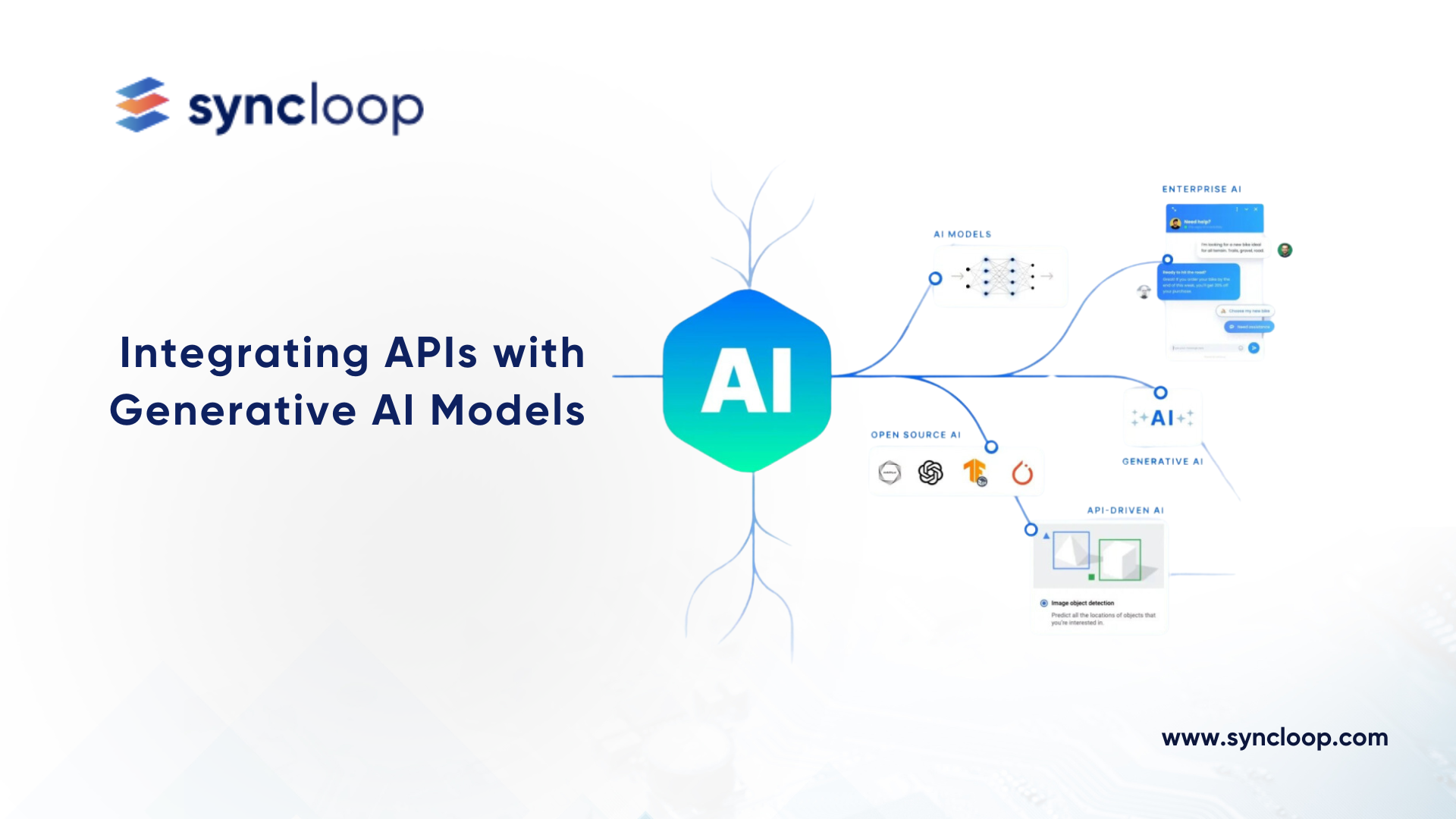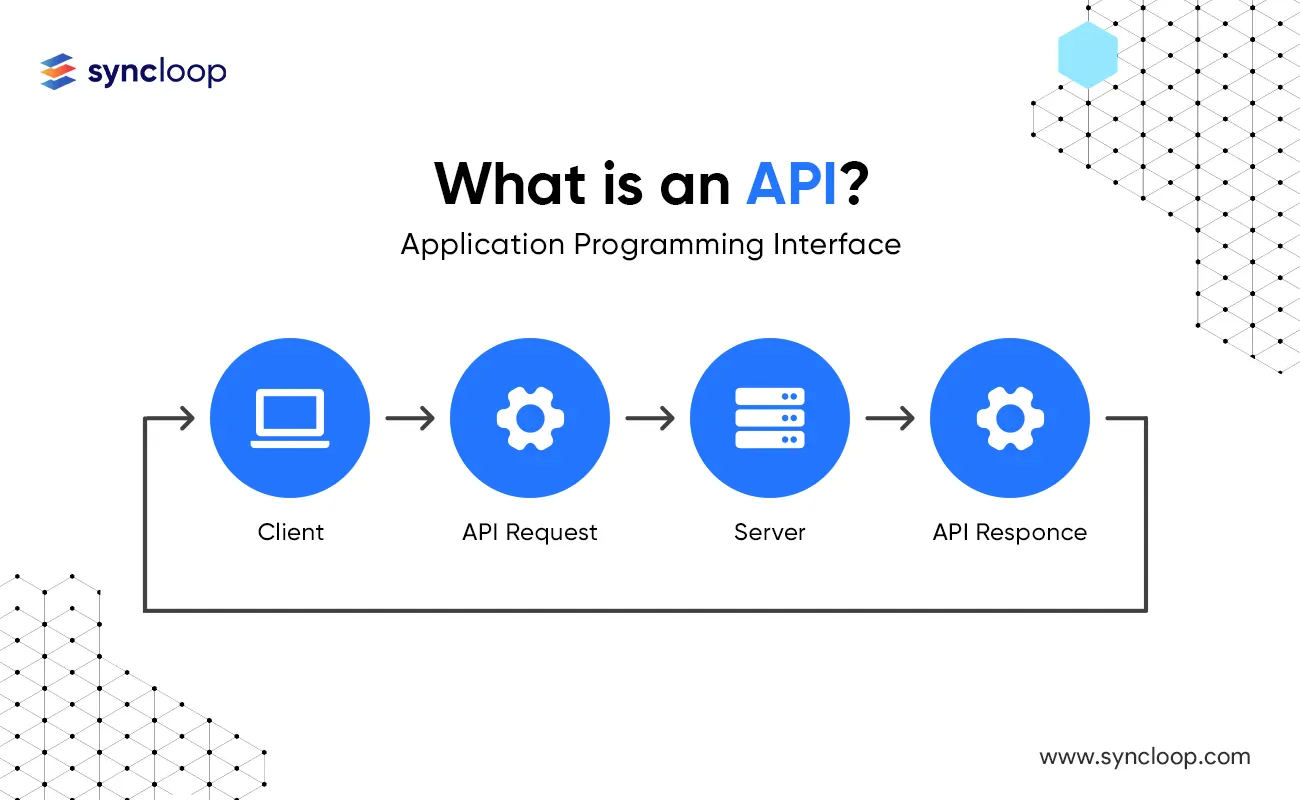Integrating APIs with Generative AI Models
Posted by: Deepak | September 06, 2024

Categories: API integration AI, generative AI models, AI automation
The convergence of APIs (Application Programming Interfaces) and generative AI models is revolutionizing the way content is created, personalized, and automated. By leveraging APIs, businesses can harness the power of AI to generate high-quality content, personalize experiences, and streamline workflows. This blog delves into the synergistic relationship between APIs and generative AI, exploring their applications, benefits, and challenges.
The Intersection of APIs and Generative AI
APIs serve as the bridge between generative AI models and the applications they power. By exposing AI capabilities through well-defined interfaces, APIs enable seamless integration and utilization of these models. This synergy unlocks a wide range of possibilities for content creation, personalization, and automation.
Key Benefits of Integrating APIs with Generative AI
- Enhanced Content Creation: Generative AI models can generate high-quality content, such as articles, blog posts, code snippets, and creative text, significantly reducing the burden on human writers.
- Personalized Experiences: APIs can integrate generative AI models with customer data to deliver personalized content, recommendations, and experiences.
- Automated Workflows: APIs can automate various tasks, such as content moderation, customer support, and data analysis, freeing up human resources for more strategic activities.
- Innovation and Creativity: Generative AI can inspire new ideas and creative approaches, fostering innovation and differentiation.
Common Use Cases
- Content Generation: APIs can be used to generate articles, blog posts, product descriptions, and marketing copy.
- Natural Language Processing (NLP): APIs can power chatbots, virtual assistants, and language translation services.
- Image and Video Generation: APIs can generate images, videos, and artwork based on text prompts or other inputs.
- Code Generation: APIs can assist developers in writing code, suggesting completions, or generating entire code snippets.
Technical Considerations for Integration
- API Design: Design APIs that clearly define the input parameters and expected outputs for the generative AI models.
- Data Preparation: Ensure that the data used to train and fine-tune generative AI models is high-quality, relevant, and representative.
- Model Selection: Choose appropriate generative AI models based on the specific task and desired level of performance.
- Integration with Existing Systems: Integrate AI-powered APIs with your existing applications and workflows to leverage their capabilities effectively.
- Ethical Considerations: Address ethical concerns related to bias, fairness, and transparency in AI-generated content.
Tools and Technologies
- Generative AI Models: OpenAI's GPT-3, Google's LaMDA, and Meta's OPT-175B are examples of powerful generative AI models.
- API Platforms: Platforms like AWS Lambda, Azure Functions, and Google Cloud Functions can be used to deploy and manage APIs that expose generative AI models.
- Natural Language Processing Libraries: Libraries like NLTK, spaCy, and Gensim provide tools for text analysis and natural language understanding.
- Machine Learning Frameworks: Frameworks like TensorFlow and PyTorch are essential for building and training generative AI models.
Challenges and Best Practices
- Data Quality: The quality of the data used to train generative AI models significantly impacts the quality of the generated content.
- Bias and Fairness: Address biases in AI models to ensure fair and equitable outcomes.
- Ethical Considerations: Be mindful of ethical implications, such as the potential for misuse of generated content.
- Cost: Using commercial AI models can involve costs associated with API usage or model licensing.
- Continuous Improvement: Regularly evaluate and refine AI models to ensure they remain effective and up-to-date.
Conclusion
The integration of APIs with generative AI models offers immense potential for businesses across various industries. By leveraging AI-powered APIs, organizations can streamline workflows, enhance content creation, and deliver personalized experiences to their customers. However, careful consideration of data quality, ethical implications, and technical challenges is essential for successful implementation. By following best practices and staying updated on the latest advancements in generative AI, businesses can harness the power of APIs to unlock new opportunities and drive innovation
Back to Blogs

